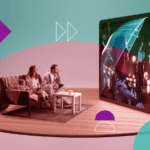By Margarita Fitzpatrick, Chief Client Officer at Barefoot
Marketing has changed a lot in the past 10 years, never mind the past 20 years. It seems like only yesterday when most of the client-agency expectations fit into neatly defined boxes of AOR, direct, shopper, multi-cultural or media, eventually evolving to include digital. Not so today. The landscape today consists of customized agency solutions — from traditional AOR to project scopes, from boutique shops with integrated offerings to large holding company solutions, from a focus on brand-building to a focus on performance and everything in between.
The biggest challenge facing agencies today is deciding who they are and who they want to be. Agencies must evolve if they want to play a role in a shifting landscape of disruption where technology is constantly evolving and the demand for more customized solutions is increasing. So, let’s talk about the three most significant trends impacting agencies today and what agencies should do to adapt.
What are the three trends impacting agency business models today?
1. Proliferation of touchpoints
Rapid media fragmentation is causing clients to feel overwhelmed, insecure and uncertain about their overall marketing strategy. With so many options, it can be challenging for companies to know where to place their, in many cases, shrinking marketing budgets. The decline in TV advertising, where you were guaranteed a certain amount of reach, is only making advertising more difficult. If brands want to survive today, they can no longer focus on one campaign with a handful of assets to cover them for one or two years. They need customized content delivered faster and cheaper to every channel. How does this affect agencies? Well, agencies are on the receiving end of these demands and must figure out how to deliver the excellence and quality expected from clients under reduced timelines and budgets.
2. Personalization everywhere
Another factor contributing to the change is the desire to personalize every consumer interaction. According to a recent McKinsey report, 71%of people expect companies to deliver personal and relevant interactions and 76% get frustrated when this doesn’t happen. Clients are feeling the pressure to deliver personalized content across every stage of the consumer/buyer journey but many fail to understand what it really takes to make that happen including the data, tools, processes and people. Agencies have a role to play in envisioning what’s required and delivering parts of the solution. And so do client organizations. This is why clear, authentic partnerships must be prioritized.
3. The idea that “in-housing solves it all”
Unprecedented financial pressures and the complexities of managing an ever-increasing roster of specialty partners have made clients wonder if they would be better off on their own. According to Forrester’s August 2021 CMO Pulse Survey, 44% of U.S. B2C marketing executives were planning to move more agency work to their in-house teams in 2022. This leaves agencies with a mixed bag of services based on what capabilities clients have in-house or have an appetite to develop. Where one client wants to bring the strategy in-house and partner for execution; the next one wants to bring the execution in-house and partner on strategy and innovation.
What does this mean for the Agency of the Future?
Agencies can only envision what might be and create opportunities to optimize their chance of survival. The bottom line is that agencies have a hard choice to make — to be the orchestrators or to be the specialists. The orchestrators will focus on strategy and transformation, tapping into specialty teams or client in-house teams to deliver results. The specialists will focus on doing one thing, or a few things, really well and plugging into client in-house teams or serving as white-label solutions for other agencies.
What can agencies do today to prepare?
1. Invest in your people
No matter what model an agency follows, they will need teams of highly curious, flexible, diverse and resilient people. Agencies will need to invest in them — training them, supporting their ability to handle change, encouraging their health and well-being and cultivating a culture of learning and growth.
2. Invest in change management capabilities
Whether as orchestrators or specialists, agencies will need to drive, implement and navigate client organizational changes. Agencies need to be equipped with the right tools — governance models, maturity assessments, success frameworks, multi-year roadmaps — and the right expertise — psychology, organizational behavior, sociology — to be more active, enthusiastic leaders of or participants in change.
3. Invest in strategy and forecasting
It will no longer be enough to understand and apply insights from what was observed in the past or simply identify trends without outcomes. Agencies need to develop predictive, forecasting capabilities to anticipate and prepare for everything and anything that could happen. This proactive mindset will help clients pivot when the time is right.
4. Invest in your agency
Agencies have always lived in feast or famine mode. Just when you think you’ve got it figured out, a client situation changes leaving you feeling like you’re back to square one. Agencies need to break the cycle by having protected, multi-year investment plans that allow them to respond, not react, to changes in the industry. By planning ahead, you are more likely to build capacity for the future, retain talent and better meet client needs.
Between the fragmented media landscape, changing consumer expectations, and differing client perspectives on workflows, the challenges agencies face might feel daunting. Clients are no longer just looking for outcomes, they are looking for experts — and that expert can be you. By shifting your offerings to fit into the current landscape of disruption — whether that be focusing on speciality teams or learning to do one thing really well — you and your clients can be an agency consumers feel confident investing in. Stop trying to make old models serve both your team and your clients but rather lean into the transformation and become an agency of the future, today.
About the Author
Margarita Fitzpatrick, Chief Client Officer at Barefoot, is a global marketing leader with over 25 years of experience in advertising, consultancy, data & analytics and CRM. Margarita is passionate about customer-centricity and using data to create relevant experiences that nurture Long Term Customer Value.








